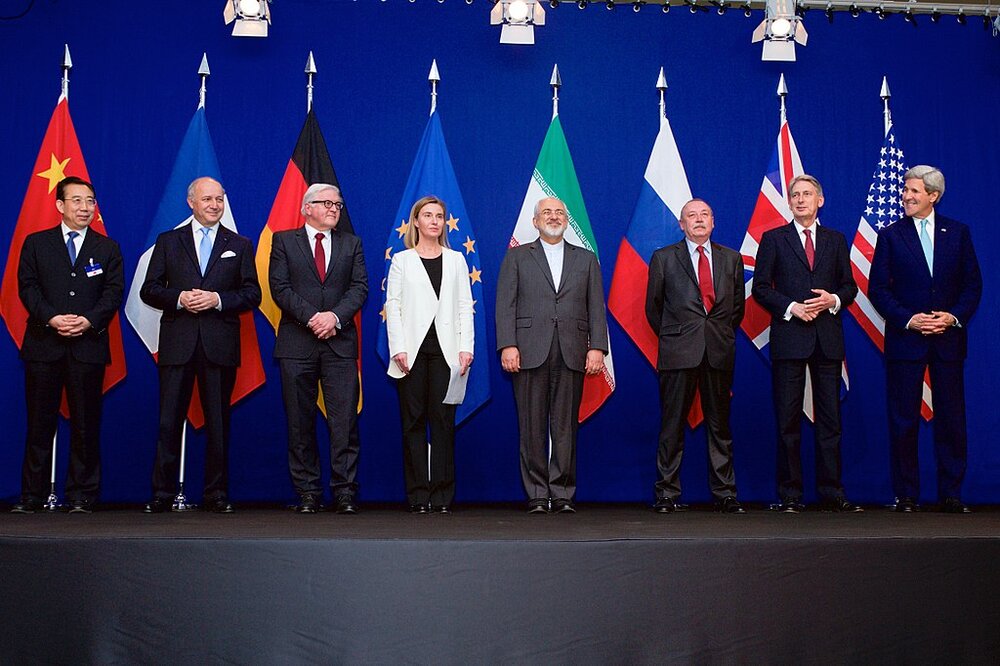Global effort needed to end chilling effects of U.S. sanctions on Iran: Guardian

In a commentary on January 22, The Guardian said the U.S. sanctions on Iran may have been unilateral, but their chilling effect was global and therefore global efforts, especially by the Europeans, are needed to end them.
Donald Trump officially exited the 2015 nuclear deal in May 2018 and began introducing the harshest ever sanctions against Iran in violation of UN Security Council Resolution 2231 that had endorsed the agreement.
Trump introduced a total ban on Iran’s oil export and even refused to relax sanctions during the Covid-19 pandemic.
After waiting for a full year, in May 2019 Iran began to gradually remove limits on its nuclear activities at bimonthly intervals. At the time Iran announced if the remaining members protect Iran from U.S. sanctions it will reverse its decision. However, the Europeans did nothing tangible and they just expressed verbal support for the agreement.
Following is an excerpt of the article:
For nearly three years, the fate of the 2015 Iran nuclear deal has hung precariously in the balance. The Trump administration withdrew from the Joint Comprehensive Plan of Action (JCPOA) – to use its official name – in 2018, arguing that a policy of economic coercion, dubbed “maximum pressure”, would deliver an improved agreement. But all it achieved was the hollowing out of the existing one. Europe now must seize the opportunity to help revive and even strengthen it.
The JCPOA’s original bargain was straightforward: limiting and monitoring Iran’s nuclear program and in return delivering relief from international sanctions built up over years.
Trump’s sweeping sanctions policy undid those financial benefits, and as a result, Iran began discarding the nuclear restrictions the JCPOA had placed on it. Raising the rate of uranium enrichment to 20% and starting activities related to uranium metal production earlier this month were the latest in a series of breaches that have increased in gravity as the damage from U.S. sanctions cut ever deeper. Iran is now in a third successive year of economic recession.
With the Biden administration taking office, the UK, France and Germany (the so-called E3), which are all JCPOA participants, as well as the European Union, which serves as the deal’s coordinator, are well-positioned to spearhead the JCPOA’s revival as a first step towards engaging with Iran on broader issues. This requires a coordinated and multi-dimensional effort.
In Washington, the nuclear deal remains deeply divisive. Despite the “maximum pressure” campaign’s clear failure in delivering on its stated objectives, critics will insist that Biden’s declared intent to reengage with Tehran is folly. That is an argument echoed by U.S. allies in the Middle East (West Asia), notably Israel, whose prime minister, Benjamin Netanyahu, is loudly urging the incoming administration to stick to its predecessor’s line and give the Islamic Republic no quarter on the nuclear front.
“In Washington, the nuclear deal remains deeply divisive. Despite the ‘maximum pressure’ campaign’s clear failure in delivering on its stated objectives, critics will insist that Biden’s declared intent to reengage with Tehran is folly. That is an argument echoed by U.S. allies in the Middle East (West Asia).”
European governments are not unsympathetic to some of the Trump team’s arguments, which regional players echo, on the need to address other aspects of Iranian policy, particularly its ballistic missile program and regional power projection. They also see room for improvement on the nuclear deal itself.
But the record of the past three years is clear: sanctions did not solve those issues, and in many ways made them worse by raising tensions across the board while undoing the real progress that had been made toward keeping Iran’s activities in check.
If Biden moves toward reviving the JCPOA, Europe should make it clear it supports a move to return the nuclear agreement to full strength as the best means of not just defusing a brewing crisis, but laying the foundation for follow-on discussions on additional issues based on dialogue and negotiations rather than coercion.
The challenge will be to put this into practice. As JCPOA participants, the E3 and EU should work with Iran and the International Atomic Energy Agency (IAEA) in producing a clear roadmap for Iran to reverse its JCPOA breaches and resume full compliance. This must include a timetable for dismantling surplus centrifuge cascades and blending down or shipping out excess enriched uranium stockpiles. That should be technically achievable within two or three months.
In parallel, Europe should take immediate preparatory steps for reversing the economic harm caused by U.S. sanctions, which deprive Tehran of the relief the JCPOA was always intended to deliver. This could be done through working with the private sector to support trade with Iran. U.S. sanctions may have been unilateral, but their chilling effect was global. Giving companies the clarity and support they need to engage with the Iranian market – freely and without fear of punitive action – in the event that sanctions are relaxed or lifted would be a critical step toward ensuring the economic benefits for all sides.
Last year, Iran submitted an IMF loan request to help deal with the Covid-19 pandemic, an added burden on an already beleaguered economy. Europe should urge the Biden administration to support that request, and also ensure that humanitarian trade is unimpeded while Washington prepares to reverse its wider sanctions policy. The U.S. could also greenlight European pre-purchases of Iranian oil, which could allow Europe to provide Iran with a line of credit to be used for humanitarian trade or other essential purchases – an idea floated by the French president, Emmanuel Macron, in 2019, but obstructed by the Trump administration.
Iran should reciprocate these confidence-building steps.
Another important element in a European diplomatic effort lies in moving Iran and its Persian Gulf Arab neighbors from estrangement to engagement.
Leave a Comment